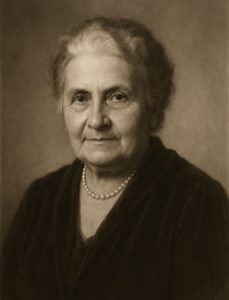 Montessori education has long been recognized for its emphasis on independence, hands-on exploration, and intrinsic motivation. Developed by Dr. Maria Montessori more than a century ago, the approach empowers children to direct their own learning in environments intentionally designed for discovery. Rather than relying on rote memorization or standardized testing, Montessori classrooms encourage students to question, experiment, and connect their understanding through real-world experiences. This style of education naturally aligns with the disciplines of science, technology, engineering, and mathematics, all of which thrive on curiosity and creative problem-solving.
Montessori education has long been recognized for its emphasis on independence, hands-on exploration, and intrinsic motivation. Developed by Dr. Maria Montessori more than a century ago, the approach empowers children to direct their own learning in environments intentionally designed for discovery. Rather than relying on rote memorization or standardized testing, Montessori classrooms encourage students to question, experiment, and connect their understanding through real-world experiences. This style of education naturally aligns with the disciplines of science, technology, engineering, and mathematics, all of which thrive on curiosity and creative problem-solving.
In a Montessori setting, learning science and mathematics begins with concrete exploration before moving toward abstraction. Young children might observe plant growth, explore animal habitats, or build simple machines, allowing scientific principles to unfold through observation and manipulation rather than explanation alone. As they progress, students engage in projects that bridge multiple subject areas—such as designing structures, coding simple programs, or calculating measurements for real-world applications. These experiences mirror the process of scientific inquiry and technological invention, where trial, error, and adaptation are key components of understanding.
Technology and engineering also find natural expression within the Montessori framework. Classrooms encourage students to use tools, materials, and even digital platforms as extensions of thought and creativity rather than distractions. Older learners might construct models, design experiments, and refine prototypes in ways that reinforce the same problem-solving skills used by engineers and inventors. Mathematics becomes more than a subject—it becomes a language of precision that connects patterns, shapes, and logical relationships across disciplines. This integration makes learning purposeful and rooted in discovery rather than memorization.
A defining strength of the Montessori approach is its emphasis on self-direction and reflection, qualities that mirror the mindset of scientific thinkers and innovators. Students learn to plan tasks, manage time, and assess outcomes with growing independence. The teacher’s role as a guide allows every learner to move forward when ready, fostering confidence and resilience that carry well into advanced study and professional life. By nurturing curiosity alongside discipline, Montessori education helps children develop both the creative and analytical capacities essential for the modern world.
Ultimately, Montessori and the study of science, technology, engineering, and mathematics share a common vision: education that prepares children to explore, question, and solve the unknown. Both prioritize real-world relevance, collaborative learning, and the joy of discovery. The result is not only academic readiness but also the development of adaptable, thoughtful individuals equipped to shape and improve the world around them—one experiment, idea, or innovation at a time.
